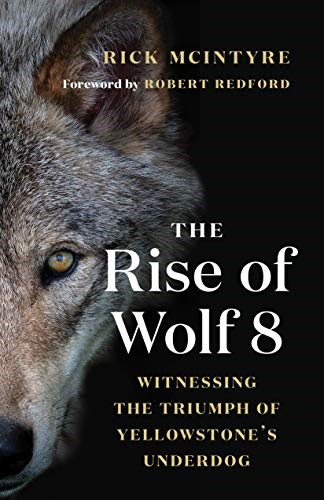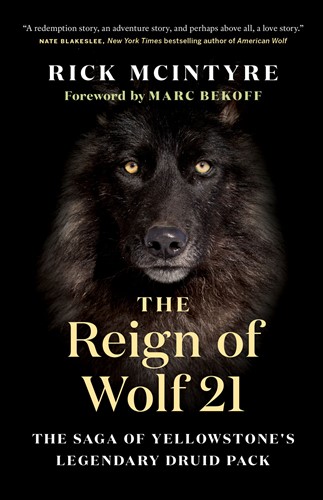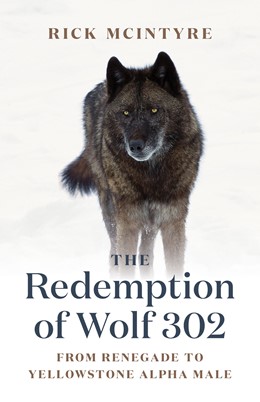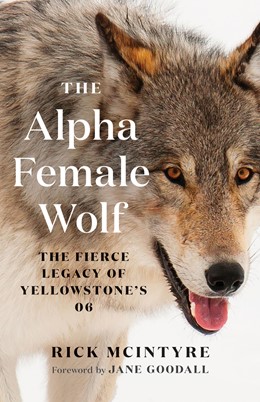
We had the pleasure of interviewing noted wolf expert, Rick McIntyre, as our Environmental Hero this quarter! Rick stands as an eminent figure in the field of wolf research, renowned for his unwavering dedication and profound insights into these magnificent creatures. For over four decades, Rick has studied wolves, immersing himself in their captivating world. His extensive experience and in-depth knowledge have earned him a reputation as a leading authority on wolf behavior and ecology. Notably, Rick spent a significant portion of his career in Yellowstone National Park, meticulously documenting over 100,000 wolf sightings. Affectionately known as the "wolf interpreter," he has shared his expertise through captivating talks and educational endeavors, enlightening audiences about the complexities of wolf pack dynamics, territories, and activities. His invaluable contributions as a researcher and author have played a pivotal role in enhancing our understanding and appreciation of these iconic apex predators and their vital role in maintaining ecological balance.
Interview
Introduction to Rick McIntyre
Rick introduces himself and talks about what his schedule looks like, where he wakes up early hours in the day so he can get a look at the wolves before they go away.
"My name is Rick McIntyre and I've been working in Yellowstone National Park since 1994. I originally had started here in our naturalist division for the National Park Service. Those are the rangers that do the campfire programs, the nature walks, and things like that. And my title in those early years was Wolf interpreter, because I had worked with wolves in Denali National Park in Alaska, and then also a little bit in Glacier National Park in Northern Montana."
How Did You Get Interested in Wolves
Rick McIntyre discusses his interest in wolves and how his career specializing in wolves began. As a child, Rick observed a dog named Shey, who would go on daily adventures, and decided to follow him one day. This sparked his fascination with wildlife. After college, Rick got a job at Denali National Park in Alaska, where he had frequent encounters with wolves and found them more interesting than other species. He describes wolf packs as similar to human families, with alpha males and females, and different age categories of offspring. Rick highlights the intelligence of wolves by noting their matriarchal society, where the alpha female is the commanding officer. He shares stories of female wolves successfully leading and even converting rival males to her side. Unlike lions and bears, male wolves are protective and often adopt and care for unrelated pups.
Is It Ever Difficult to Go Into Yellowstone Due to Weather?
Rick talks about how the difficult conditions that he sometimes has to go through in order for him to observe the wolves, such as the harsh winters with a lot of snow, and low temperatures.
Tell Us About The Removal and Re-entry of Wolves Into Yellowstone?
Rick talks about wolves being pushed out and being brought back into Yellowstone.
What has happened since Montana and Wyoming with the legalizing of the killing of wolves?
Rick discusses the impact of changes in wolf hunting laws near Yellowstone National Park, expressing concern about the killing of wolves, and emphasizing the economic benefits wolves bring through tourism.
Tell Us About Your Books
Rick talks about the books he has written on specific wolves. It includes the stories of Wolf 8, who overcame adversity, and Wolf 21, who became a great leader. It also features the redemption of Wolf 32 and the tale of The Alpha Female. Rick discusses the colors of the wolves' coats and their unique characteristics. The books portray love, heroism, alliances, and the complexities of wolf pack dynamics.
What Event is The Most Memorable To You When Observing Wolves?
Rick talks about the most memorable situation that he has experienced and seen throughout his observation of wolves.
Why Don't They Name The Wolves?
Rick goes into the reasons why nobody names the wolves, including himself.
What Should People Know About Wolves That They Probably Don't?
Rick talks about things that he thinks more people should know about wolves that some people might not understand.
What Do You Want To Tell People Who Are Skeptical About Wolves?
Rick talks about some misconceptions people might have about wolves and how dangerous they actually are.
Is There Anything Else You Would Like to Share?
Rick concludes the interview, giving final thoughts and anything else he thinks needs to be mentioned.




About the author
Green Kids Club